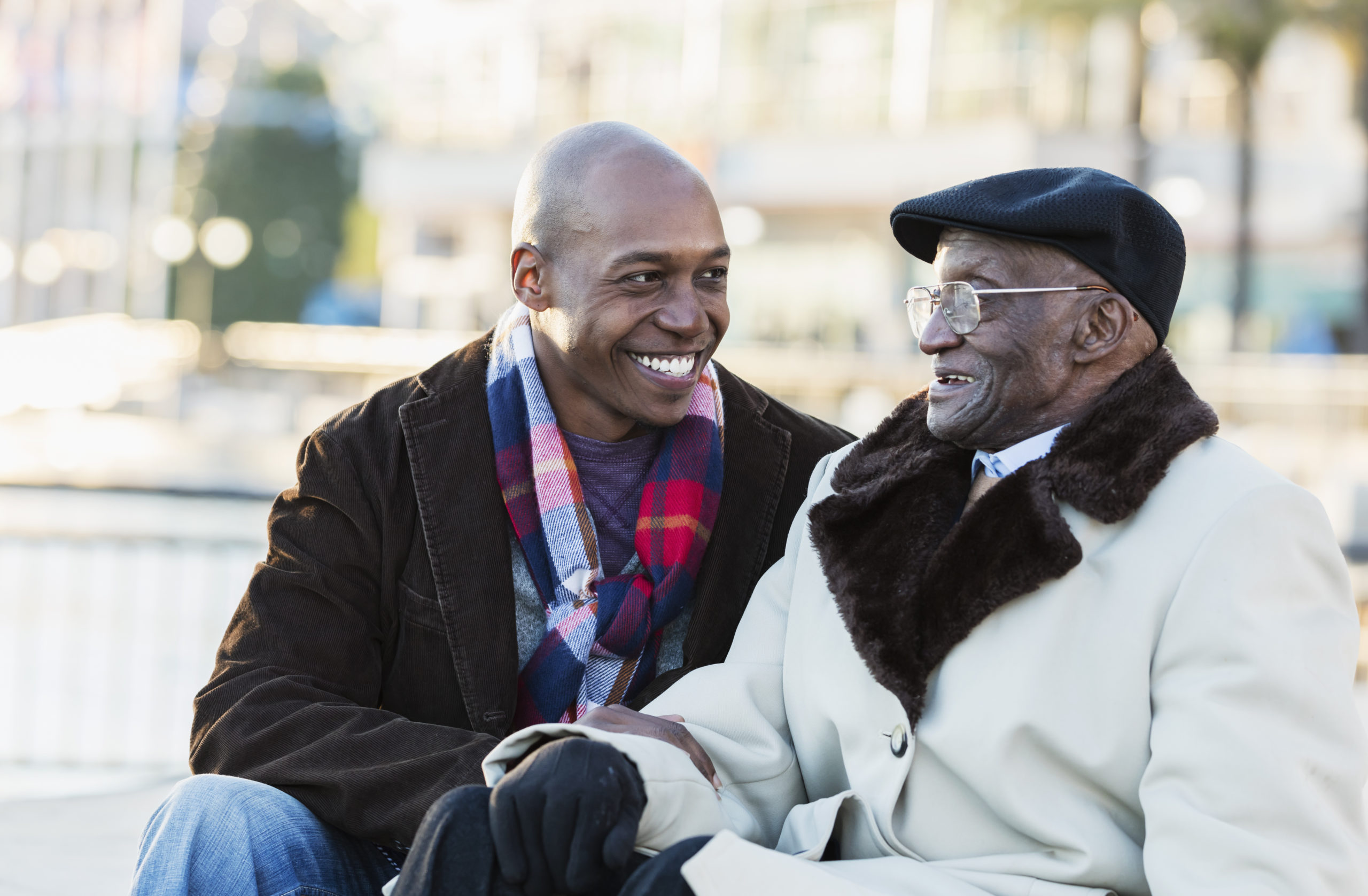4 Min Read
Winter Safety Tips for Seniors & Caregivers

The weather outside is frightful, especially for seniors. Winter’s harsh chill and icy conditions can be particularly dangerous for older adults. In addition to an increased risk of falls, seniors are also susceptible to flu and pneumonia because of lowered immunity.
If you’re a senior or caregiver of a senior loved one, here are some winter safety tips for seniors to prepare for a safer, healthier winter season.
Dress for the weather.
If you have to go out on chilly days, bundle up with loose layers of clothing. The air between layers will keep you warm. Don’t forget a hat and scarf. You lose a lot of heat through your head and neck if left uncovered. Wear a waterproof coat or jacket and shoes in the snow. Change your clothes immediately if they get wet.
Continue COVID-19 safety protocols.
To reduce the spread of illness, especially during cold and flu season when our immune systems may be weakened, continue to regularly wash your hands and disinfect the home. Wear a face mask while around others, always carry hand sanitizer, and wear other personal protective gear, like gloves, to reduce your risk.
Prevent snow-related injuries.
It’s easy to slip and fall in the winter, especially in icy and snowy conditions, so keep fall prevention tips in mind. Strenuous activities like snow shoveling put too much strain on the heart, especially for seniors with heart disease. It can also be dangerous for seniors with balance issues or osteoporosis. A healthcare provider should always determine if shoveling or working in the snow is safe for you. If not, ask a loved one or caregiver for help with snow removal, salting icy walkways, and other outdoor winter maintenance.
Drive safely.
If you’re a senior caregiver and transport your loved one, make sure your car is serviced and ready to handle the winter weather. All tires, brakes, fluids, wipers, headlights, and taillights should be in working condition. Keep essentials like snacks, blankets, flashlights, and extra batteries in your car, in case you get stuck.
Winterize the home.
Make sure the house isn’t losing heat through the windows or doors. Consider weather stripping or caulking to keep cool air out. All gutters should be free of debris and the roof secure. Remove any dead trees or leaves from storms that may cause walking hazards.
Ask family and friends to check in during winter. If you experience a power outage, for example, ask to stay with a loved one. Unless indoor fireplaces, gas and wood stoves, and gas appliances are properly cleaned, vented, and used, they may also leak dangerous amounts of carbon monoxide. Call an inspector before using these for the first time in winter.
Stay warm inside.
There’s no need for seniors to stay outside in the winter for long. It’s best to avoid the cold altogether and stay warm and toasty inside. Set your indoor temperature to 65 degrees F or higher. Especially on cold days, throw a blanket over your legs and wear socks and slippers. Wear long underwear or warm pajamas to bed, and use extra covers as needed.
Take stock of your medications.
Some illnesses like thyroid problems and diabetes make it hard to stay warm, and some medications may also affect your body heat. These include medicines you get from your doctor and those you buy over the counter, like cold medicines. Talk to your doctor about your medications and how they may affect you this winter. If a big winter storm or icy conditions are in the forecast, look at your medicine cabinet and make sure you have enough medications for at least a week.
Know the signs of hypothermia—and how to prevent it.
Hypothermia can occur when your body temperature gets very low. A body temperature below 95 degrees F can cause health problems like heart attack, liver damage, and worse. Being outside in the cold, or even in a very cold house, can lead to hypothermia. Early signs of hypothermia include:
- Cold feet and hands
- Puffy or swollen face
- Pale skin
- Shivering
- Slower than normal speech or slurring words
- Sleepiness
- Being angry or confused
Later signs of hypothermia include:
- Moving slowly, trouble walking, or being clumsy
- Stiff and jerky arm or leg movements
- Slow heartbeat
- Slow, shallow breathing
- Blacking out or losing consciousness
If you’re experiencing any of these warning signs, call 911 immediately.
Have an emergency plan in place.
The best way to keep you or your loved one safe this winter is to have a plan in case of an emergency. If you’re a caregiver and won’t be able to check-in on your loved one because of an illness or emergency, have a reliable, trustworthy family member on back-up to help.
If there’s a blizzard or other severe weather event, make sure there’s a plan for your loved one’s groceries, medications, and more. Check on them frequently if you can’t be there in person. Make a list of all emergency phone numbers, and make sure your loved one knows who to call for help if needed.

0 Comments